Early Childhood Initiative
The University of New Hampshire's Early Childhood Initiative is led by Dr. Kimberly Nesbitt from the Department of Human Development and Family Studies and is located within the College of Health and Human Services. The Initiative is dedicated to improving outcomes for New Hampshire's children through collaboration with families, schools, and communities.
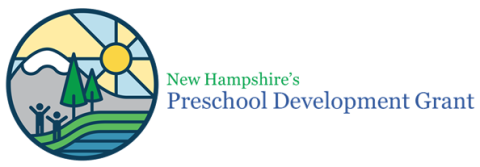

about new hampshire's
preschool development grant
New Hampshire's UNH-led Preschool Development Grant (PDG) continues the state's efforts to better understand the current early childhood system and use those data to strengthen the system, better address the needs of vulnerable young children and their families, and help build a solid foundation to improve outcomes for NH's children, families, schools, and communities. New Hampshire received over $35 million in Preschool Development Grant (PDG) funding between 2019 and 2024. The $26.8 million grant (2020-2022, with a no-cost extension into 2023) will help to build New Hampshire’s early childhood care and education system to be effective, inclusive, responsive, efficient, and evidence-informed. In 2023, New Hampshire was awarded a new year of funding for the Preschool Development Grant, bringing an additional $3.9 million to the state (US DHHS ACF Award# 90TP0110).

NH Preschool Development Grant
activities and Resources
New Hampshire's Preschool Development Grant (PDG) supports a wide range of activities and efforts to better understand the current early childhood system and to better address the needs of young children and their families, focusing on five key activities and strategic resources to build a coordinated, effective early childhood system across the state (US DHHS ACF Award# 90TP0110). These activities include the development of family engagement strategies, enhancement of early childhood workforce training programs, and improvement of data systems for better decision-making. Additionally, it provides resources for community-based services that support early learning and child development. By focusing on these critical areas, the grant aims to create a more inclusive, responsive, and effective early childhood system that meets the diverse needs of New Hampshire's young children and their families.

Coaching, teaching, and research
The UNH Early Childhood Initiative is committed to play-based learning coaching, teaching, and research. Associate Professor and PDG primary investigator Dr. Kimberly Nesbitt, the UNH Early Learning Coaching Team, and PDG staff are spearheading efforts to share best practices and promote the successful implementation of play-based learning statewide. This initiative focuses on practice-based coaching, professional development for key stakeholders, the creation and dissemination of resources, and rigorous research. By providing comprehensive support and resources, the team ensures that educators are equipped to integrate play-based learning effectively, enhancing early childhood education across the state. This multifaceted approach strengthens teacher capabilities, enriches the learning experience for children, and fosters a collaborative network among New Hampshire's early childhood educators.
Featured Articles
Spotlight on Early Childhood Initiatives
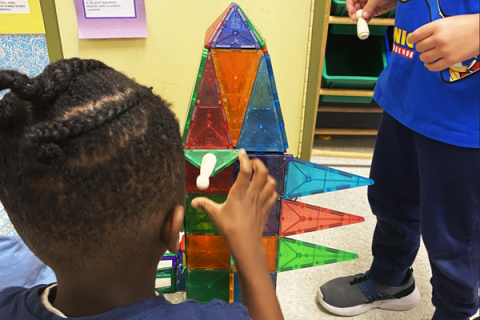
Inside the effort to bring 'guided play' to more Kindergarten classrooms
The UNH Early Learning Coaching Initiative, led by Dr. Kimberly Nesbitt, partnered with the Manchester School District in 2023-2024 to coach kindergarten teachers in implementing guided play. This NHPR article shares insights from Manchester teachers, Dr. Nesbitt, and coaches on the impact of guided play in fostering social and academic skills, along with ongoing efforts to expand this work.
read the article
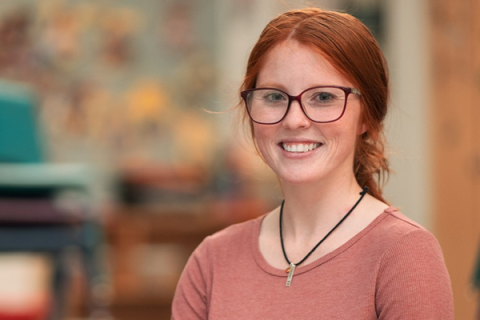
The Art of Play:
Brittney Finds Passion in Teaching & Learning
Supported by mentors and the Early Childhood Tuition Assistance and PDG programs, Brittney Underwood pursued her passion for early childhood education through college courses, while balancing work and family. Her commitment to creating engaging playful environments for children resonates deeply with the families she supports and reinforces her dedication to the field.
Read the article

UNH to Establish Hub for Educational Research
The Carsey School of Public Policy at UNH, supported by a $1.5 million grant from the Couch Family Foundation, is creating NH's first early care and education research consortium. This initiative brings together experts to strengthen the state’s early care system by focusing on access, cost, and quality. Over three years, the consortium will drive research to address affordability and workforce challenges.
Read the Article
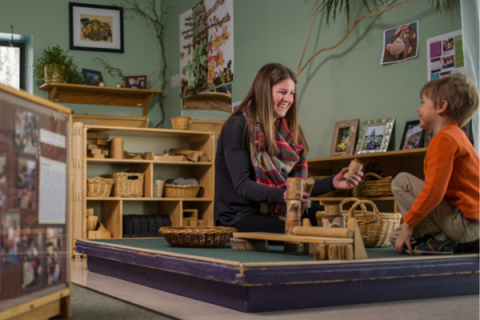
leading the way for new hampshire's children: UNH leads effort to transform the state's early childhood education system
- In 2022, UNH’s College of Health and Human Services advanced early childhood education through a three-year, $26.8M Preschool Development Grant. Led by Dr. Kimberly Nesbitt, this initiative enhances play-based learning, offers teacher coaching, and expands family resources to support New Hampshire’s children and families.
read the article

Ensuring bright futures: unh leads effort to strengthen new hampshire's early childhood education system
- From 2019 to 2022, UNH partnered with the NH DHHS and NHED to lead a $26.8M Preschool Development Grant. This collaboration aimed to build New Hampshire’s early childhood care and education system to be effective, inclusive, responsive, efficient, and evidence-informed, promoting optimal outcomes for children and families statewide.
Read the Article
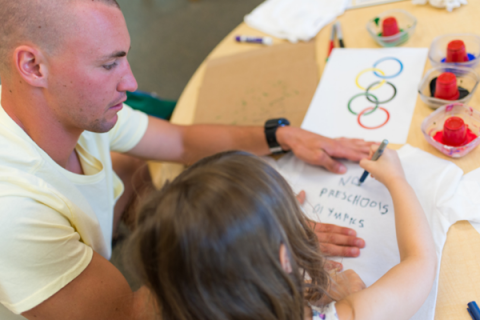
UNH awarded $3.8 million preschool development grant: funding will help improve new hampshire's early childhood education system
- In 2019, UNH received a $3.8M Preschool Development Grant to enhance New Hampshire’s early childhood system. Led by HDFS Associate Professor, Dr. Kimberly Nesbitt, the project aims to build a multi-tiered framework that supports positive outcomes for children, families, and communities, focusing on quality care and accessibility statewide.
read the article
The Preschool Development Grant is sponsored by the Department of Health and Human Services, Administration for Children and Families (Award# 90TP0110). Any opinions, findings, conclusions, or recommendations expressed in this publication do not necessarily reflect the views of any organization or agency that provided support for the project.
